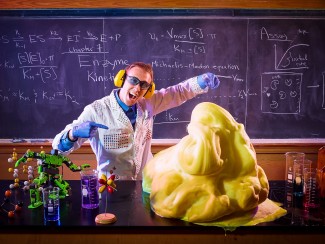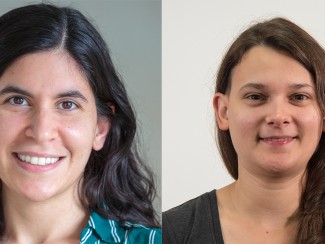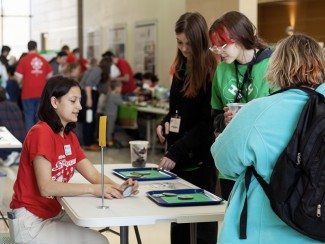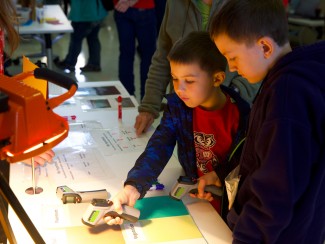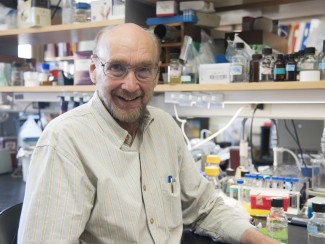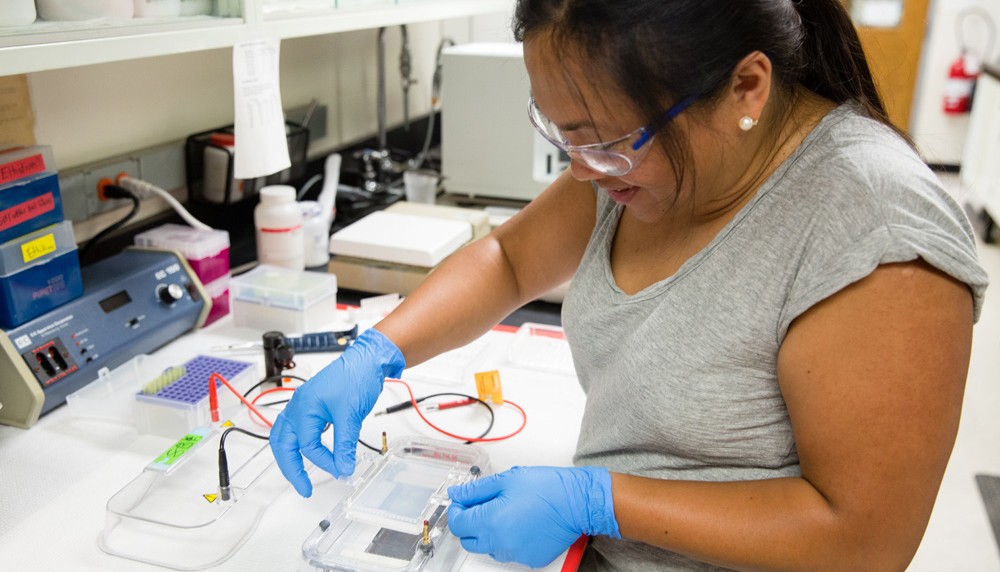
Just days after shepherding their science students out of the classroom and into the less structured days of summer, Cherrie Anne Maner and Lisa Sorlie were already traveling to the University of Wisconsin–Madison campus to hone their research skills and begin work on new lesson plans for next year.
As participants in the Research Experience for Teachers (RET) program hosted by the Great Lakes Bioenergy Research Center (GLBRC) and the Wisconsin Energy Institute, Maner and Sorlie spent seven weeks this summer working alongside GLBRC scientists to investigate the key challenges of making sustainable biofuels. Maner and Sorlie immersed themselves in research while also developing instructional materials that will provide their students the experience of investigating similar questions in the classroom.
“I want my students to experience authenticity and to understand that science is about using real-life data to solve real-world problems,” says Maner, an AP Biology teacher at Fond du Lac High School in Fond du Lac, Wis. “I applied for the RET program so I could experience scientific research for myself, pull my students into that same type of bioenergy research in the classroom, and then build the AP Biology class curriculum around it.”
Maner worked with agronomy professor Mike Casler and a team of researchers focused on developing new genetic varieties of switchgrass, a native prairie grass that holds promise as a feedstock for advanced biofuel production. Casler’s team is using a combination of traditional crop breeding and advanced molecular biology techniques to develop winter-hardy switchgrass varieties that flower later in the year and produce more biomass.
For her research project Maner analyzed genetic data from cross-bred switchgrass plants in an effort to determine which genes are associated with delayed flowering time. Her RET experience, she says, has shifted her teaching paradigm from “here’s the content” to “here’s an example of scientific research we can use to understand biological principles at work.”
Maner has returned to Fond du Lac High School with a plan to use switchgrass as a model organism for teaching the principles of genetics in her AP Biology curriculum. The unit will culminate with students analyzing actual data from Casler’s research as they seek to determine which genes are correlated with delayed flowing time.
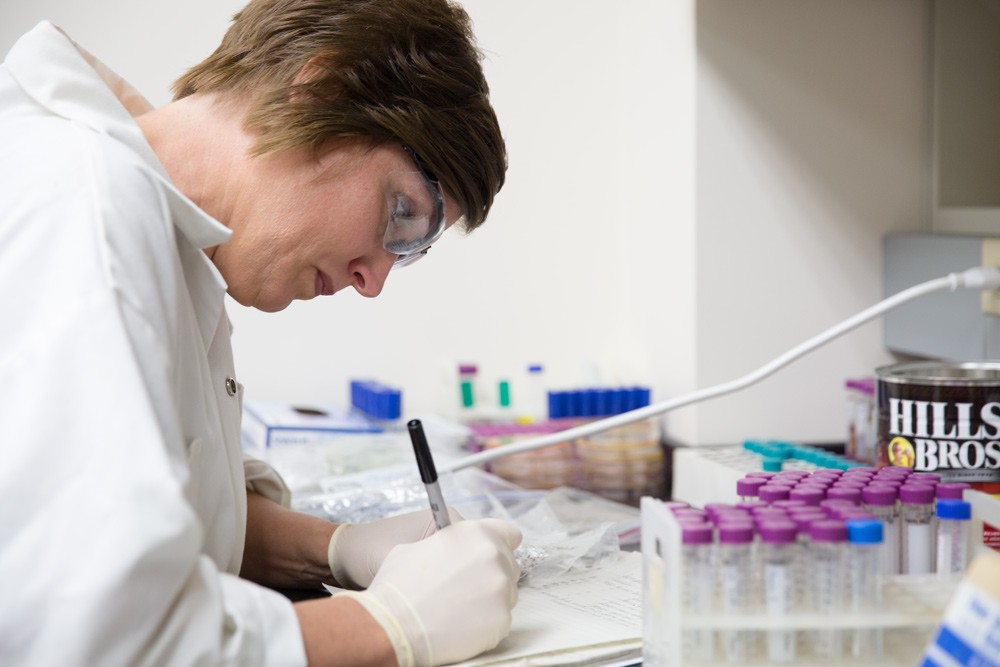
Sorlie spent her summer learning lab techniques and scrutinizing various yeast species under a microscope as part of genetics professor Chris Hittinger’s Yeast Exploration and Analysis Science Team, searching for yeasts that could potentially increase ethanol production during biomass feedstock fermentation.
“We’re looking for yeasts that can crunch into tough layers of biomass and also withstand harsh industrial processes,” explains Sorlie, who has taught middle school in the town of Bonduel, Wis., for the last 14 years.
Like Maner, Sorlie believes that grade-school science education is often too focused on telling kids how things work. In the upcoming school year, Sorlie is transitioning to the role of a library media specialist where she will teach elementary, middle, and high school students.
“The world is big and Bonduel is small – we say that a lot,” says Sorlie. “But we’re a piece of the big world so we need to consider how we can make a real difference. I’m excited to introduce my students to real scientific challenges and problem-solving techniques related to biofuel production. I want to help them realize that they can be scientists too!”
Sorlie has developed a variety of instructional materials related to yeasts and advanced biofuels in order to reach different learners: an online picture book; a webcast; lesson plans rich with graphics, videos, and hands-on experiments; and guidelines for AP Biology students to collaborate with UW–Madison scientists through the YEAST program.
Back in their school districts and poised to begin another academic year, Sorlie and Maner remain enthusiastic about their summer experience.
“The scientists are genuinely welcoming and so good at teaching,” says Sorlie. “The work is significant, the mission is admirable, and we were lucky to be here.”

